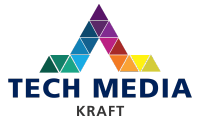The rapid advancement of artificial intelligence is reshaping the global workforce, redefining the skills that are essential for success. As AI continues to automate routine tasks, analyze data with unprecedented speed, and drive innovations across industries, the human element becomes increasingly valuable.
While AI excels in processing information and performing repetitive functions, it lacks the emotional intelligence, creativity, and complex problem-solving abilities that define human capabilities.
In this era of technological transformation, it’s crucial to recognize and cultivate the human skills that complement AI, ensuring that we not only survive but thrive alongside it.
1# Critical Thinking and Problem-Solving
AI is excellent at processing data and generating insights, but it often lacks the nuanced understanding required for complex problem-solving. Critical thinking remains one of the most vital human skills, as it allows individuals to analyze situations, evaluate multiple perspectives, and make informed decisions.
In the AI-driven workplace, professionals must be adept at identifying problems that AI can’t solve alone and devising innovative solutions that incorporate both human intuition and AI-generated data.
For instance, in a business environment, it might provide predictive analytics based on historical data, but a human’s ability to interpret these insights within the context of current market trends and socio-economic factors is irreplaceable.
Critical thinking enables professionals to challenge AI outputs when necessary, ensuring that decisions are not solely based on algorithms but are also influenced by human judgment and experience.
2# Emotional Intelligence (EQ)
Emotional intelligence, or EQ, is the ability to understand and manage one’s own emotions and the emotions of others. In the AI era, where machines are increasingly handling transactional tasks, the human touch becomes more important. EQ is critical in roles that require empathy, communication, and interpersonal relationships—areas where AI currently falls short.
For example, in customer service, while AI can handle basic inquiries and process transactions, it is human representatives who can navigate complex emotional situations, resolve conflicts, and build strong customer relationships. High EQ allows professionals to connect with clients on a personal level, fostering trust and loyalty that AI alone cannot achieve.
Additionally, leaders with strong emotional intelligence are better equipped to manage teams, particularly in diverse and dynamic environments where understanding and addressing the needs of different individuals is crucial.
3# Creativity and Innovation
AI is powerful in processing and analyzing existing data, but it cannot replicate the human ability to think creatively and generate original ideas. Creativity is not just about artistic expression; it involves the ability to think outside the box, approach problems from new angles, and develop innovative solutions that push the boundaries of what is possible.
In the workplace, creativity drives product development, marketing strategies, and business models that differentiate a company from its competitors. For example, AI might analyze market trends and suggest optimal product features, but it’s human creativity that envisions a product that captures consumers’ imaginations or a campaign that resonates on a deeper level.
Encouraging a culture of innovation is key to leveraging AI’s capabilities while retaining the unique human contributions that lead to breakthroughs and differentiation in the market.
4# Adaptability and Lifelong Learning
The pace of technological change demands that professionals continuously adapt and learn new skills. In the AI era, the ability to quickly acquire new knowledge and adapt to new technologies is crucial. This adaptability ensures that individuals remain relevant and valuable as the job market evolves.
Lifelong learning is not just about acquiring technical skills; it also involves developing soft skills that AI cannot replicate. Professionals who are committed to lifelong learning are more likely to stay ahead of industry trends, embrace new tools, and pivot to new roles as needed.
For example, a marketer who learns to use AI tools for data analysis can enhance their strategies, but they must also continuously refine their communication and creative skills to effectively translate insights into compelling campaigns.
Moreover, adaptability in the AI era means being open to change and resilient in the face of uncertainty. As AI disrupts traditional job roles and creates new ones, professionals who can pivot, reskill, and adapt to new opportunities will thrive.
5# Leadership and Collaboration
Leadership and collaboration are quintessentially human skills that are indispensable in the AI-driven workplace. While AI can optimize processes and manage data, it cannot lead teams, inspire employees, or foster collaboration in the way humans can.
Effective leadership involves motivating and guiding teams, making strategic decisions, and managing change—areas where human insight and emotional intelligence are critical.
In addition, collaboration is essential as work becomes increasingly complex and interdisciplinary. AI tools can assist in managing projects, but it’s the human ability to work together, share knowledge, and build consensus that drives success. Leaders who excel in collaboration can bring diverse teams together, leveraging both human and AI strengths to achieve shared goals.
Leadership in the AI era also involves ethical considerations. As AI systems are integrated into business processes, leaders must ensure that these technologies are used responsibly, balancing efficiency with ethical implications. Human leaders are needed to make decisions about how AI is deployed, ensuring that it aligns with company values and societal expectations.
Conclusion
As artificial intelligence continues to transform the workplace, the importance of human skills cannot be overstated. Critical thinking, emotional intelligence, creativity, adaptability, and leadership are the cornerstones of a successful career in the AI era.
These skills complement AI’s capabilities, allowing humans to leverage technology while contributing unique value that machines cannot replicate.
In a world where AI is becoming increasingly prevalent, professionals who invest in developing these essential human skills will not only survive but thrive.
By embracing continuous learning and adapting to new challenges, individuals can ensure they remain at the forefront of their industries, driving innovation and leading the way in a technology-driven future.
I hope you find the above content helpful. For more such informative content please visit TechMediaKraft.

